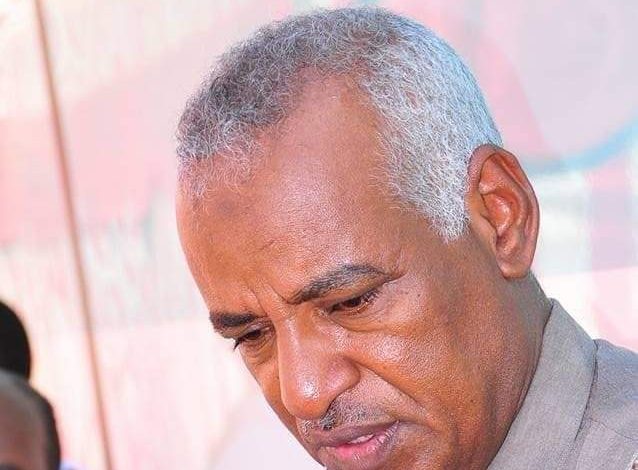Opinion
No Alternative to Railways but Railways!!

By Mahgoub Fadl Badri
The Ministry of Transport, Sudan Railways Corporation, is pleased to invite you to the resumption of the Port Sudan-Atbara train service on Thursday, December 26, 2024, at 3:00 PM, under the patronage of Mr. Abdullah Yahya, Member of the Sovereignty Council, and under the sponsorship of Engineer Abu Bakr Abu Al-Qasim, Minister of Transport.
An announcement that might seem very ordinary and unremarkable if not for the extraordinary circumstances our country is enduring. Circumstances where war has turned such routine events into exceptional occurrences! A train traveling from one station to another shouldn’t have required the presence of a Sovereignty Council member or a minister to oversee and sponsor its departure, but may God hold those responsible accountable!
The railway is Sudan’s lifeline, unifying its people’s hearts, inspiring poets, and bringing together loved ones in a single journey. On such journeys, families meet, hearts unite, people intermarry, and children are born — all thanks to train travel. Most trips begin with minor disputes among passengers over seats, especially in the “third class and fourth class,” but soon the tension fades. Passengers get acquainted, share their food (known as “Zuwada”), and act as if they’ve been neighbors for years.
The train passes through small rural stations interspersed with medium and large stations. For example, passengers of the “Karimi Train” eagerly await the arrival of their train at the first “luxury” stop, Kab Station, where vendors sell snacks like lupins and fried chicken legs. Upon reaching Abu Hamed Station, they find tea with milk, fried dough (zalabia), and date pastries. At Berber Station, they can purchase traditional hats and sweet bread rolls. Meanwhile, Atbara Station offers urban sophistication with electric lights illuminating the platform, a buffet with modern conveniences, and a range of fresh and canned food for travelers to recharge before continuing their journey.
Most travelers’ “Zuwada” consists only of fried meat, boiled eggs, and “duqqa” (a mixture of salt and fennel seeds). Occasionally, there might even be a can of tahini sweets!
The “Karimi Train” model is a microcosm of other trains (with slight variations).
Colloquially referred to as “Al-Qatar,” it’s rare to hear it called “train.” The railway built cities, enriched the nation’s culture, and became a livelihood for many Sudanese. Every poet and singer has celebrated it since the “Haqiba” era up until today, from songs like “Blow Your Whistle, Train” to “Train of Longing.” Even Professor Abdullah Al-Tayyib titled one of his most significant works “From the Train Window.”
The train is the safest, least costly, and most widespread mode of transport. Railway workers are among the pioneers of Sudan’s independence movement, boasting the largest numbers, strongest organization, and greatest influence. Just as tribes pride themselves on lineage, the Railway Workers’ Union takes pride in its members, being a melting pot of all Sudanese tribes. Furthermore, the railway has left a significant impact on small business owners, itinerant vendors, and suitcase traders — a legacy that cannot be summarized here and would require extensive books to document.
There’s no alternative to railways but railways. Such is its role in the war of dignity against the militia.
Salute to the railway, from the workshops to the tracks, the administration, the signaling team, and the workers on the ground — “lowering the semaphore for trains to pass freely.”
Victory to our valiant army.
Glory and strength to our fighting people.
Disgrace and shame to our enemies and their collaborators.
Victory is only from God.
God is great, and may the eyes of cowards never sleep.
Source: “Al-Muhaqqiq” Website



